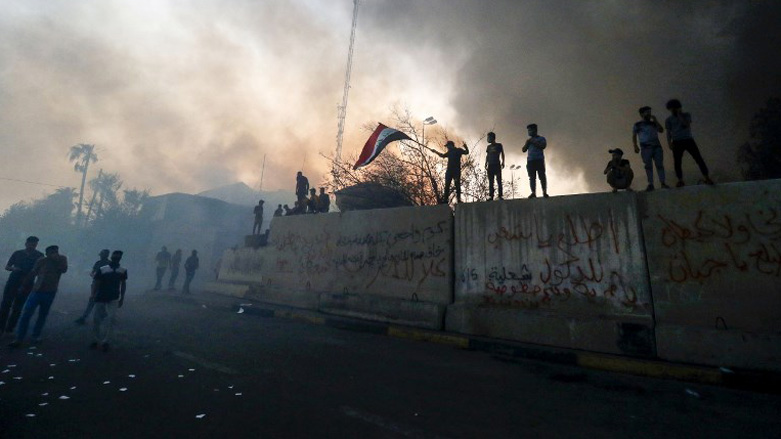Iraq’s main seaport reopens in Basra after protesters withdraw

ERBIL (Kurdistan 24) – Iraq’s Umm Qasr port reopened on Saturday at 3:00 am (00:00 GMT), and all operations are said to have resumed after protesters left the port’s entrance they blocked the night before, government sources said.
All work at the seaport halted after protesters amassed at the entrance and did not allow workers or vehicles to pass through.
Umm Qasr, located 60 km (40 miles) south of Basra, is one of the major ports of the country through which it receives shipments of goods such as grain, vegetable oil, and sugar, crucial to a nation that relies largely on imports.
For several days in a row, hundreds of protesters have been decrying the chronic lack of basic services provided to Basran residents.
Emboldened by anger at the recent deaths of demonstrators and reports that over six thousand residents had been hospitalized for drinking impure water, they poured into the streets on Thursday and Friday, setting fire to many political party offices, government buildings, and the Iranian consulate.
The protests have been ongoing for weeks as they have demand better public services, namely clean water and regular electricity, and a better employment rate. So far, over 20 people have died while protesting, and hundreds more have been injured, according to local human rights groups.
After protesters torched the Iranian Consulate in Basra Friday night, Tehran closed its side of the Salamcheh border crossing located to the south of Basra city.
The attack did not result in any known casualties but caused considerable damage to the consulate building. Following the incident, Basra Operations Command declared a curfew in the city.
The demonstrations began on July 9 in the oil-rich province of Basra and spread to several other provinces in southern and central Iraq, including the capital Baghdad. In addition to improved public services, protesters demand that the Iraqi federal government end widespread institutional corruption, a common complaint among the citizenry of a nation that is oil-rich, but with institutions functioning well below standards of more developed nations.
Lawmakers in Iraq's new parliament are set to meet Sunday after multiple national and international calls were made to quickly form the next government, in part to address demands of the demonstrators.
Editing by John J. Catherine
